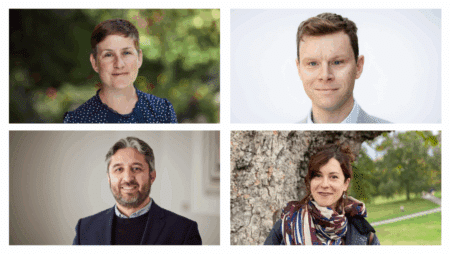Overview
In early 2023, Boris Eldagsen won the World Photography Organization’s Sony World Photography Award for his work ‘The Electrician’. The photograph depicts two women, one holding the other’s shoulders, both gazing away from the camera. This highly emotional image did not, however, carry off the prize. Eldagsen declined the award and admitted to the organisers that he had used AI to create the image. At the awards ceremony in London, he stated that ‘AI images and photographs should not compete with each other in an award like this. They are different entities. AI is not photography’.
The resulting media storm brought much needed scrutiny to the question of how AI has intruded into the work of creative professionals, and the extent to which systems of professional gatekeeping, creative peer review, categorisation and valorisation have been compromised by new AI tools and practices. This exploratory research project seeks to shed light on these vulnerabilities by examining the extent to which AI is intruding into spheres of professional legitimacy for photographic work.
The project will explore the intrusion of AI in photography through three discrete research phases: an ethnographic study of the new category of ‘virtual photography’ on Flickr.com, visual analysis to understand the nature of the images uploaded to this new category, and a survey of professional photographers to gauge the reception of AI in production and post-production of photographs. The project will attempt to situate the current debates on AI and photography within an historical context in which new technologies threaten and expose notions of what constitutes ‘art’ and creative practice.
Photo:
This image was generated using AI




